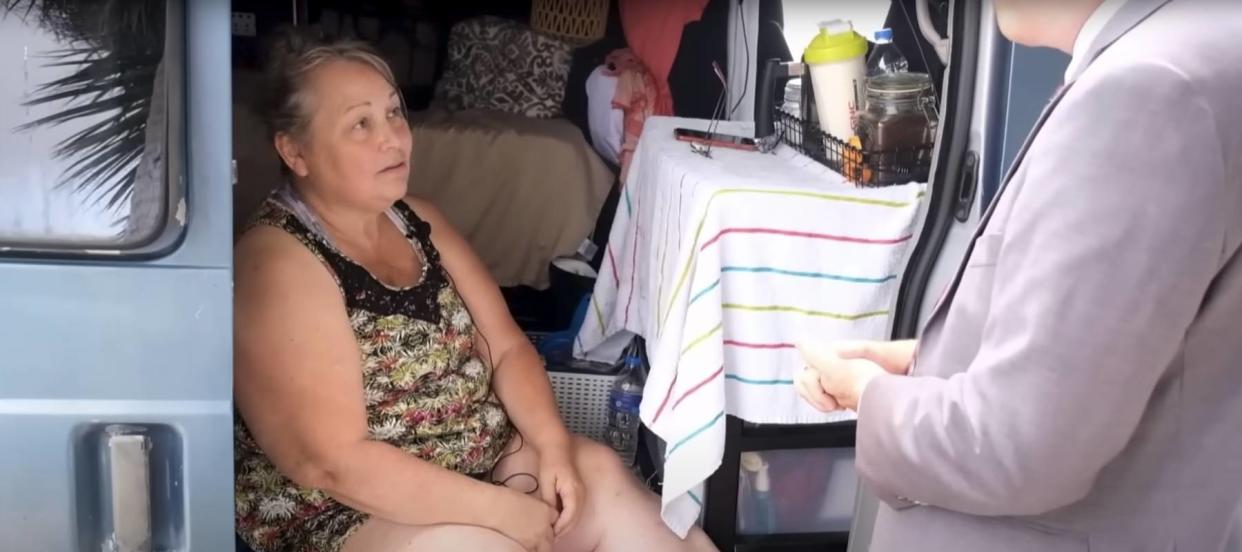'Pay it, or roll the dice': Florida residents bunk in their cars as home insurance costs cripple people's finances

Residents in Florida are turning to their cars for shelter because they can’t afford to keep a roof over their heads.
NBC2 News reported in March that a growing number of Floridians are living in their vehicles because of the soaring costs of homeownership — with home insurance reigning as the ultimate financial pain point.
Don't miss
Commercial real estate has beaten the stock market for 25 years — but only the super rich could buy in. Here's how even ordinary investors can become the landlord of Walmart, Whole Foods or Kroger
Cost-of-living in America is still out of control — use these 3 'real assets' to protect your wealth today, no matter what the US Fed does or says
Car insurance rates have spiked in the US to a stunning $2,150/year — but you can be smarter than that. Here's how you can save yourself as much as $820 annually in minutes (it's 100% free)
Homeowners in Florida pay $4,419 a year, on average, for insurance on a $300,000 dwelling, according to Insurance.com — which is painfully high when compared to the national average of $2,601.
That equates to an eye-watering average $368.25 home insurance bill every month — on top of other housing expenses like a mortgage, utility bills and so on.
For some in the Sunshine State, that cost is too much to bear.
“This is my home,” Ann Rose, a senior who lives in a minivan in North Fort Myers, told NBC2 News. “My insurance on my vehicle is my home insurance.”
Here’s why Floridians like Rose are being forced to take such drastic measures.
An insurance 'crisis'
The word “crisis” is a favorite among commentators describing Florida’s home insurance market, which has seen a huge drop in insurance availability and a counter surge in prices in recent years.
This has left many homeowners in the state struggling to find financially feasible insurance options, leaving some to face an impossible choice.
“You either pay it or you roll the dice,” Phil James of Lee County told NBC2 News. “If a catastrophe does happen, you'll lose more.”
Read more: These 5 magic money moves will boost you up America's net worth ladder in 2024 — and you can complete each step within minutes. Here's how
There are multiple factors, both natural and man-made, that have driven up the cost of home insurance in Florida.
First, extreme weather like hurricanes, tropical storms and flooding have triggered historically high catastrophe costs in recent years. And with sticky inflation, elevated interest rates, labor and material shortages, the property insurance claims as a result of those weather disasters have grown more expensive and tougher for insurers to manage.
On top of that, insurers in the state have struggled to cope with excessive fraud and costly litigation, often revolving around bogus property damage claims. Florida is said to account for 79% of all homeowners insurance lawsuits over claims filed nationwide — and yet Florida’s insurers receive only 9% of all U.S. homeowners insurance claims, according to the Florida governor’s Office.
Up against such challenges, insurers have struggled to run viable businesses in Florida and several have exited the state, either by choice or through liquidation. Those still soldiering on have hiked their rates and become far more selective about what risks they’re willing to insure, leaving some residents in a tough bind.
Finding a fix
Floridians who find themselves barred or priced out of the conventional insurance market can access coverage through the state-backed insurer of last resort, Citizens Property Insurance.
And those desperate to cling to their homes have turned to Citizens in their hordes. As of Feb. 29, Citizens had over 1,169,427 policies in force, with total premiums surpassing $4 billion and a total exposure of around $522.2 billion.
To cover its ever-mounting costs, Citizens hiked its premiums by an average of 11.5% at the end of 2023 — but that has not stopped Florida governor Ron DeSantis repeating concerns about the state-backed insurer’s solvency.
“We can’t have millions of people on [Citizens], because if a storm hits, it’s going to cause problems for the state,” he told CNBC on Feb. 27.
He also said at a news conference he’d like to offer Floridians home insurance for just one dollar a year, but reiterated that the state doesn’t set insurance rates.
While insurers and lawmakers butt heads over how to fix Florida’s insurance crisis, residents are just rolling with it — in Rose’s case, quite literally.
“Things could be worse,” she said, adding that she’s “happy” to have a space to call home in her minivan.
What to read next
Leonardo DiCaprio and Oprah Winfrey invest in this asset to keep their wealth safe — you may want to do the same in 2024
Rich young Americans have lost confidence in the stock market — and are betting on these 3 assets instead. Get in now for strong long-term tailwinds
Jeff Bezos told his siblings to invest $10K in his startup called Amazon, and now their stake is worth over $1B — 3 ways to get rich without having to gamble on risky public stocks
This article provides information only and should not be construed as advice. It is provided without warranty of any kind.
